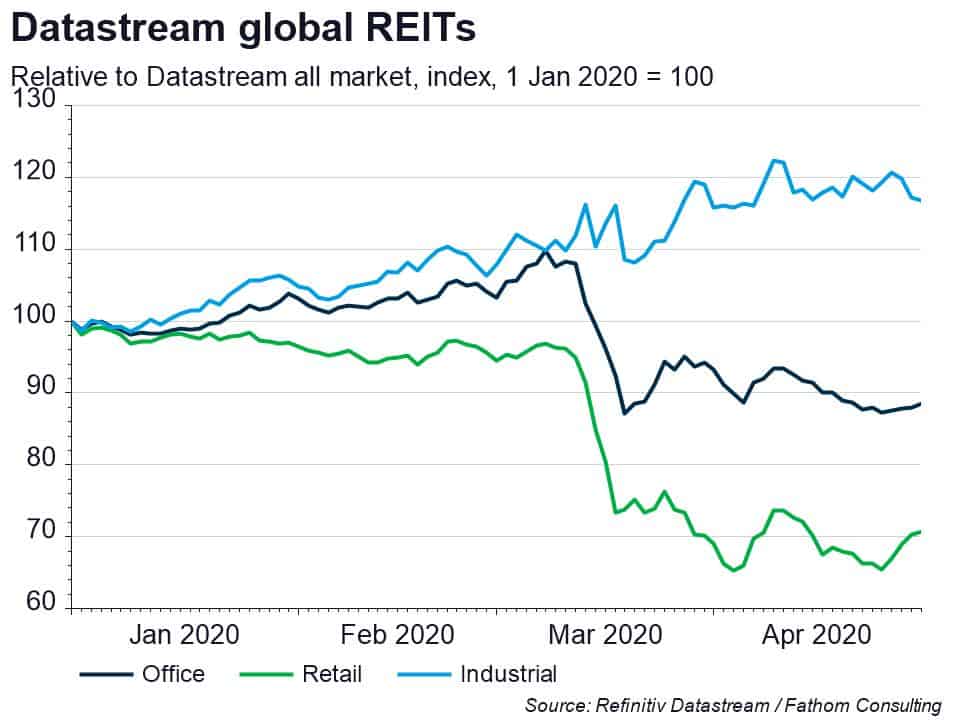A sideways look at economics
It’s not often that I’m disappointed by the OED. When I am, it’s usually because the dictionary has denied me a higher Countdown score. Today, I’m disappointed by it for another reason. In April, the OED published a revised edition, adding a number of new words related to the ongoing health crisis. Covid-19, R0 and infodemic are all now in. But, much to my annoyance, the verbs to teams and to zoom haven’t been included. Clearly, they haven’t spent much time in the Fathom virtual office… In a world where lockdowns keep us isolated, these apps keep us connected, but will they be with us for the long haul? And, could they help the transition towards a greener economy?
Usually, global emissions rise, but occasionally they fall. Given the sudden stop in activity, and the associated reduction in mobility, 2020 looks set to be one of those years. The fall in emissions has already translated into cleaner air in many major cities. However, many expect this dip to be temporary, lasting only as long as output remains suppressed. There’s even concern about “revenge pollution” once the economy recovers.
But history doesn’t always repeat itself. While the previous crisis was driven by economics, this one is first and foremost a health emergency, with social distancing the primary policy tool. As a result, the speed and timing of the recovery is likely to be determined more by epidemiology than by economics.
And the nature of the recovery could be quite different too. Through the crisis, many businesses have adapted new working practices with offices now running on a skeleton staff and other firms working entirely remotely. The ability to teams and zoom may lead to a permanent increase in remote working — prior to the crisis, less than 30% of the UK’s labour force had previous experience of WFH (that one’s in the dictionary). I wonder what that poll would show now…
Webinars have also replaced conferences and face-to-face meetings in recent weeks. Back in the day, David Frost used to take transatlantic day trips on Concorde; Laura Kuenssberg now grills the PM from home.
These trends were already underway, but there’s already a wealth of literature suggesting that economic downturns often accelerate the impact of technological change on the labour market.[1] And, not only has technology become more widely used, its quality has also improved with updates being fast-tracked while demand is high. As we noted in Recession Watch last week, investors are anticipating a fall in demand for office space, consistent with an increase in remote working.

But how much of an impact could remote working have on total emissions? Well, transport is only responsible for about a third of total emissions, and only a portion of that comes from commuting and regular business travel. That being said, if Teams and Zoom help us all to WFH a bit more and enable us to cut the amount of unnecessary business travel, then we might shave a few percent off total emissions. And if the increased pedestrianisation of city centres remains in place, then maybe there will be a permanent impact on urban air quality. This probably isn’t the technology that will save the world (and increased use of technology requires energy too), but it’s a start.
[1] See for instance: Jaimovich, N. and Siu, H.E. (2020), ‘Job polarization and jobless recoveries’, Review of Economics and Statistics, 102(1), pp. 129-147.